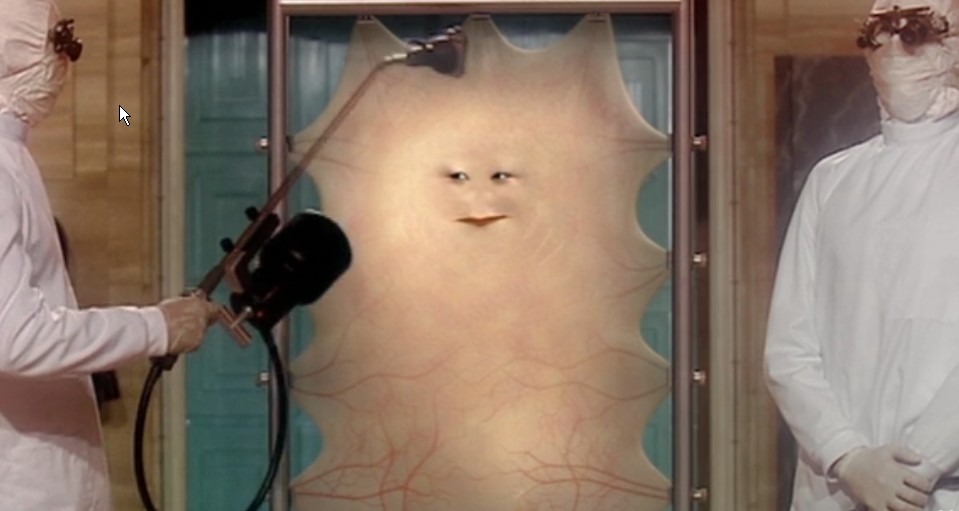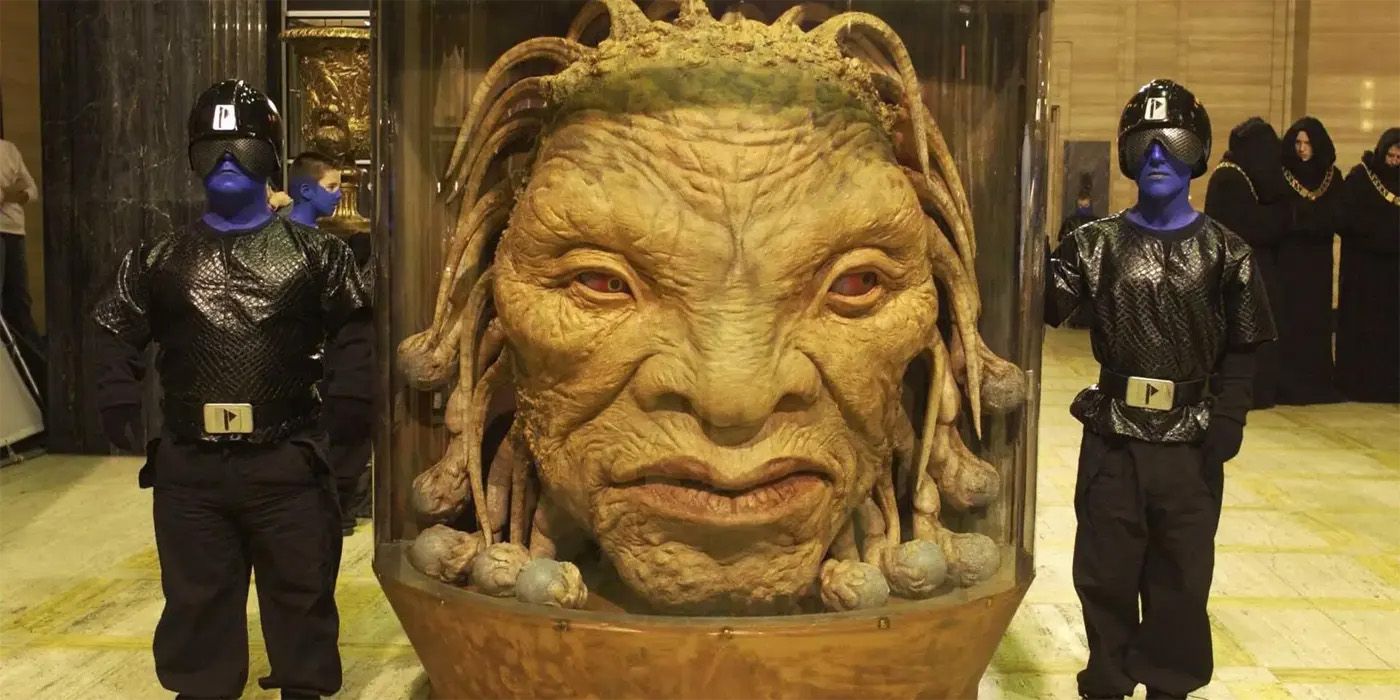Rating: 3/5
"The End Of The World" is a good episode in concept. While "Rose" remained fairly grounded throughout its runtime, the follow-up has more fantastical elements. There are more aliens, it's set in the future, and it takes place on a spaceship. Going from a grounded concept to a more science-fiction-oriented story was a good move because it gave the audience a sense of possibility. Also, it's worth noting that "The End Of The World" doesn't really feature a monster for The Doctor to face, while there are several cool-looking aliens.
The most interesting moments from "The End Of The World" come in its character development. Rose has existential dread that she's in the future when everyone she knows has died. The Doctor has his own internal drama about revealing his "true" identity and ultimately opens up to Rose at the end of the episode.
"The End Of The World" introduces a concept that defines the new series against the classic - The Time War. At the end of the episode, The Doctor reveals that he was involved in something called The Time War, and he is now the last of his people.
Time Lords were a staple of the classic series, ever since they were introduced in the 1969 story "The War Games." Having them all die off in a mysterious war was a great idea because it added a level of drama that was not present in the classics. While The Doctor was certainly always a loner, now he's truly alone in the universe. Likewise, The Time War marks a canonical split between the classic series and the new series. Classic Doctor Who (i.e. 1963-1989, plus random 90s content) is pre-Time War, and the new series (i.e. 2005 and on) is post-Time War.
Note: I stopped watching consistently around Matt Smith's era, so I don't know how the show resolved The Time War.
While the character and lore development featured in "The End Of The World" is solid, the episode's individual plot is nothing to write home about.
Basically, The Doctor and Rose travel to the end of the earth and board a spaceship that will observe the sun exploding at a safe distance. Aboard the ship, there's this woman named Cassandra, who has been surgically enhanced to live a long time and is considered to be the last human. She does not resemble a human anymore, as she is just a flab of skin with a mouth.
Cassandra basically tries to sabotage the spaceship and cause the aliens aboard to die. There's some capitalist justification for Cassandra's actions, but I honestly can't remember it because it's not memorable. Also, there's a tree lady who The Doctor flirts with.
What bothers me about 'The End Of The World" is how The Doctor and Rose treat Cassandra. Rose has a visceral reaction toward Cassandra, and tells her that she's "not a real human" and that she's just "nothing but skin." Rose seems to think that medically prolonging one's life through surgery is somehow immoral. Note, that Rose confronts Cassandra before Cassandra does anything evil. Likewise, the plot concludes with The Doctor allowing Cassandra to die of dehydration, uttering the line "Everything has its time and everything dies." The Doctor seems to share the same prejudices as Rose.
Cassandra is framed as vain and morally inferior for extending her life through surgery. In my opinion, this is deeply problematic. If medicine has progressed to the point of extending one's life a long time through surgery, why is it morally corrupt for someone to desire a long life? Should we all drop dead in our 30s like we did before modern medicine? Everyone has a right to live, even if it means that they undergo surgery that alters their body.
Of course, Cassandra is morally bankrupt in the end, but I still don't like the episode's message. The audience is meant to see Cassandra as an antagonist before she does anything wrong simply because she wants to live. We're meant to laugh when her dying words are "But I'm too young." Everyone wants to live, no one wants to die. Some people value their life over their looks, as it seems Cassandra does.
Cassandra's character is done much better in the Season 2 story "New Earth," which I'll get to soon.
"The End Of The World" also introduces The Face Of Boe, a reoccurring character through new Docotr Who's first three seasons.
Ultimately, this episode is fine. It has some cool concepts, and some compelling drama, but it doesn't hold a candle to the previous episode. Let this represent Doctor Who's philosophy on quality; sometimes you'll get an absolute banger like "Rose," but it'll be followed up by an adequate episode like "The End Of The World," which is the followed up by a truly bad story like "The Unquiet Dead."



No comments:
Post a Comment